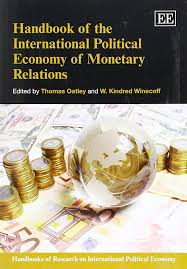The Role of International Political Economy in International Relations
International political economy (IPE) plays a crucial role in shaping the dynamics of international relations. It is the intersection where politics and economics intertwine, influencing global governance, trade policies, and diplomatic relationships among nations.
In the realm of international relations, understanding the complexities of IPE is essential for policymakers, diplomats, and scholars alike. The economic interests of states often drive their foreign policy decisions, leading to alliances, conflicts, and negotiations that have far-reaching implications on the world stage.
One key aspect of IPE is the study of how economic factors such as trade agreements, currency exchange rates, and investment flows impact international relations. For example, trade disputes between major economies can escalate into full-blown trade wars with significant consequences for global economic stability.
Furthermore, the role of international institutions like the World Trade Organization (WTO), International Monetary Fund (IMF), and World Bank in regulating economic interactions between states cannot be underestimated. These institutions shape the rules of the game in international trade and finance, influencing power dynamics among nations.
Moreover, issues such as economic development, income inequality, and financial crises are inherently linked to IPE. The distribution of wealth among nations can create tensions that spill over into political conflicts or cooperation efforts aimed at addressing common challenges.
In conclusion, international political economy serves as a lens through which we can analyse and understand the intricate connections between politics and economics in global affairs. By studying IPE, we gain insights into how states navigate the complex web of interests and power dynamics that define our interconnected world.
Six Essential Tips for Navigating International Political Economy in Global Relations
- Understand the role of international institutions in shaping global economic policies.
- Analyse the impact of trade agreements on state economies and global power dynamics.
- Examine how multinational corporations influence international economic relations.
- Consider the role of economic development in shaping political alliances and conflicts.
- Study the effects of currency exchange rates on international trade and investment.
- Be aware of how economic inequalities between states can impact diplomatic relations.
Understand the role of international institutions in shaping global economic policies.
Understanding the role of international institutions in shaping global economic policies is crucial for comprehending the complexities of international political economy in international relations. Institutions such as the World Trade Organization, International Monetary Fund, and World Bank play a significant role in setting the rules and regulations that govern economic interactions between nations. By studying how these institutions operate and influence decision-making processes, one can gain valuable insights into how global economic policies are formulated and implemented, ultimately impacting the relationships between countries on the world stage.
Analyse the impact of trade agreements on state economies and global power dynamics.
The tip to analyse the impact of trade agreements on state economies and global power dynamics in the context of international political economy is crucial for understanding the intricate interplay between economics and politics on the world stage. Trade agreements not only shape the economic landscape of participating states by influencing factors such as market access and tariff levels but also have significant implications for global power dynamics. By delving into the effects of trade agreements on state economies, one can uncover how nations leverage their economic strengths to enhance their geopolitical influence, forge strategic alliances, or assert dominance in specific industries. Moreover, examining the broader impact of these agreements on global power dynamics sheds light on how economic interconnectedness shapes international relations and fosters cooperation or competition among states.
Examine how multinational corporations influence international economic relations.
Multinational corporations wield significant influence over international economic relations, shaping the global landscape through their operations, investments, and interactions with governments. These entities often operate across multiple countries, leveraging their economic power to impact trade policies, labour standards, and market dynamics on a global scale. The decisions made by multinational corporations can have profound effects on the economies of both developed and developing nations, highlighting the intricate relationship between business interests and international relations in the realm of international political economy.
Consider the role of economic development in shaping political alliances and conflicts.
In the realm of international political economy within international relations, it is crucial to consider the profound impact of economic development on shaping political alliances and conflicts among nations. The level of economic prosperity or disparity between countries often influences their strategic interests and alignments, leading to the formation of alliances based on shared economic goals or resources. Conversely, economic disparities can also fuel tensions and conflicts as states compete for limited resources or seek to protect their economic interests. Understanding the role of economic development in shaping political dynamics is essential for comprehending the intricate relationships that underpin global governance and diplomacy.
Study the effects of currency exchange rates on international trade and investment.
Studying the effects of currency exchange rates on international trade and investment is a crucial tip in understanding international political economy within the realm of international relations. Fluctuations in currency values can significantly impact the competitiveness of exports and imports, influencing trade balances and investment decisions between countries. A strong grasp of how currency exchange rates fluctuate and the implications they have on cross-border transactions is essential for policymakers, businesses, and analysts seeking to navigate the complexities of the global economic landscape. By analysing these effects, one can gain valuable insights into how currency movements shape the dynamics of international trade relationships and investment flows.
Be aware of how economic inequalities between states can impact diplomatic relations.
In the realm of international relations, it is crucial to be mindful of how economic inequalities between states can significantly influence diplomatic relations. Disparities in wealth and economic power can create tensions, dependencies, and power imbalances that shape the interactions and negotiations between nations. Understanding these dynamics is essential for navigating the complexities of global diplomacy and fostering more equitable and sustainable relationships on the international stage.

